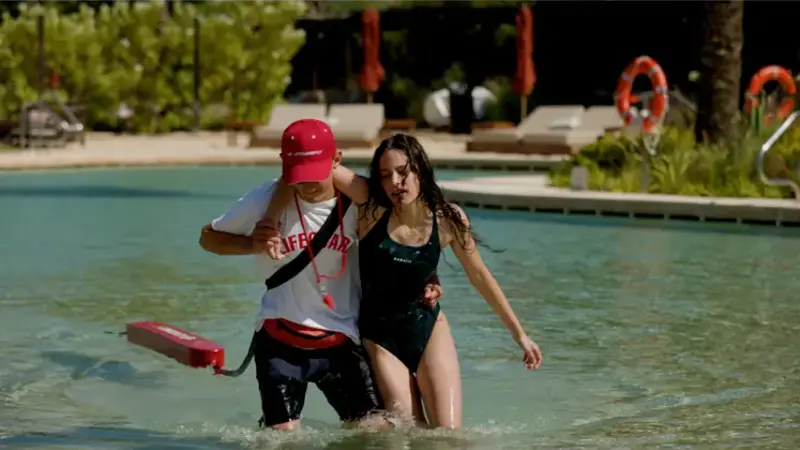Winter is often associated with chilly temperatures and the desire to stay bundled up indoors. However, there’s a unique way to enjoy the cold season that many people overlook – water activities. Here are some fun ways to enjoy the winter chills. We will discuss the American Lifeguard Association.
Hot Springs: Nature’s Winter Oasis
Hot springs are Mother Nature’s answer to the winter blues. These natural pools of geothermally heated water offer a toasty escape from the cold. Whether you’re seeking relaxation or adventure, hot springs provide the perfect setting for both.
From the volcanic hot springs of Iceland to the serene, forested pools of Japan, there are countless locations worldwide to explore. The combination of crisp winter air and the soothing warmth of the water creates a truly magical experience.
Polar Plunges: The Ultimate Adrenaline Rush
For the daring souls who thrive on adrenaline, winter polar plunges are an exhilarating option. Jumping into icy waters may seem counterintuitive, but it’s a trend that’s gaining popularity. Many places around the world host polar plunge events during the winter months, encouraging participants to take a quick, bone-chilling dip. The shock to your system and the feeling of triumph that follows are unmatched.
Ice Fishing: A Chilly Yet Rewarding Hobby
Ice fishing is a classic winter pastime that combines the tranquility of fishing with the excitement of being on a frozen lake. With the right gear and techniques, you can catch a variety of fish, from perch to trout, through holes drilled in the ice. The sound of the wind and the sensation of sitting on the ice, waiting for a bite, can be oddly peaceful.
Winter Swimming: Dive into Icy Adventures
Dedicated winter swimmers are known for taking the plunge into icy lakes and rivers when temperatures are at their lowest. This extreme sport isn’t for the faint of heart, but it’s undoubtedly an adrenaline rush. The key to staying safe while winter swimming is proper preparation and knowing your limits. Make sure to have a warm towel and hot beverage ready after your frigid dip.
Snow Tubing: Downhill Adventures on the Slopes
Snow tubing is the winter counterpart to water tubing, and it’s a thrilling experience for all ages. You’ll slide down a snow-covered hill in an inflatable tube, making it feel like a snowy waterslide. The best part? No experience is required, and it’s a fantastic family activity. Many ski resorts offer dedicated snow tubing hills, making it accessible to all.
Winter Kayaking: Paddling Through Icy Waters
For those with kayaking experience, winter kayaking can be an exciting way to enjoy the season. Dress warmly in waterproof gear, launch your kayak onto a frozen lake or river, and paddle through the icy waters. The sight of snow-covered banks and the stillness of the water create a serene winter wonderland.
Under-Ice Diving: Explore a Frozen World
Under-ice diving is a unique adventure for certified divers. You’ll don dry suits and dive beneath the frozen surface of a lake, exploring the mesmerizing world that lies beneath. The crystal-clear ice formations and the eerie silence of this underwater realm are sure to leave you in awe. Contact Us for more details.
Synchronized Winter Swimming: Artistic Chills
Synchronized swimming isn’t just for the summer Olympics. Some brave souls have taken this sport to the next level by performing in icy waters during the winter. The combination of graceful movements and the frigid environment creates a breathtaking spectacle that showcases human strength and artistic talent.
Winter Paddleboarding: A Balance Challenge
Paddleboarding isn’t limited to the warmer months. You can try winter paddleboarding on calm, frozen lakes. The challenge lies in keeping your balance on the board while navigating the icy waters. It’s a fantastic core workout and an excellent way to enjoy the beauty of a winter landscape from a different perspective.
Staying Safe in Winter Waters
While winter water activities can be incredibly fun, they come with unique challenges and risks. It’s crucial to prioritize safety and take the necessary precautions to ensure a memorable and safe experience. Here are some essential tips:
-
Dress Appropriately:
Wear thermal clothing and waterproof gear to protect yourself from the cold and wet conditions. Layering is key to retaining heat.
-
Know the Ice:
If you plan to venture onto frozen bodies of water, be sure the ice is thick enough to support your weight. Ice thickness should be at least 4 inches for walking and 5-7 inches for snowmobiles or ATVs.
-
Stay Informed:
Check weather conditions and forecasts before heading out. Sudden changes in temperature or storms can significantly impact your safety.
-
Buddy System:
Never go alone. Always engage in winter water activities with a buddy who can assist in case of emergencies.
-
Lifeguard Training and Certification:
Consider enrolling in lifeguard classes nearby to learn essential water rescue skills. Lifeguard certification can be invaluable, not only for your safety but for helping others in need as well.
Embrace Winter’s Watery Wonders
In conclusion, winter can be more fun in the water than you might think. From hot springs to ice fishing, there are plenty of opportunities to embrace the chill and uniquely enjoy the season. Just remember to stay safe, dress warmly, and, if you’re inclined to be a true water enthusiast, explore lifeguard training and certification options to ensure you’re always ready for any aquatic adventure.
Winter’s icy embrace can be just as thrilling as its warmer counterpart when you venture into the world of water sports and activities. So, grab your gear, gather your friends, and make this winter one to remember. The American Lifeguard Association can also be a valuable resource for individuals looking to enhance their water safety skills and expand their knowledge of aquatic activities.
